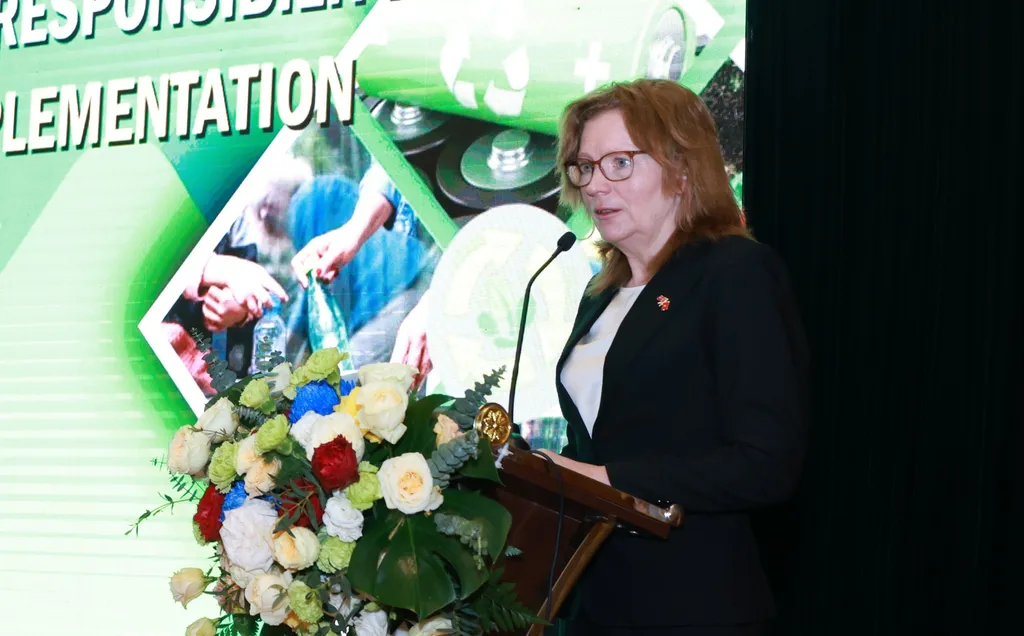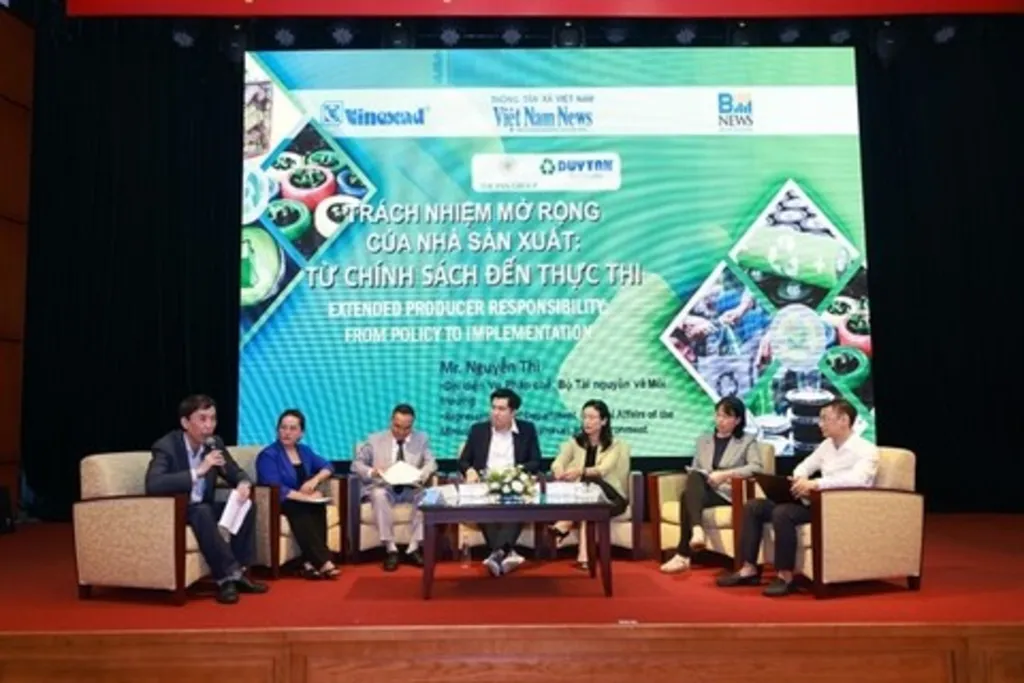 Economy
Economy

 |
| Mette Moglestue, Deputy Head of Mission from the Norwegian Embassy in Việt Nam. — VNS Photo Trương Vị |
HÀ NỘI — Extended Producer Responsibility (EPR) is one of the best proven tools to enforce the principle that polluters must shoulder the cost, according to Mette Moglestue, Deputy Head of Mission from the Norwegian Embassy in Việt Nam.
Speaking at the seminar "Extended Producer Responsibility (EPR): From Policy to Implementation" organised by Việt Nam News this morning, Moglestue cited Norway as an example, where all businesses that manufacture and import packaged goods are legally obliged to numerous EPR regimes.
She said financial incentives for consumers to return used plastic bottles or packages can be an effective way to reduce waste and make recycling easier.
"Norway strongly commends Việt Nam's proactive step towards environmental sustainability, particularly the recent enhancements to the EPR legislation, through the 2020 Law on Environmental Protection. We are also happy to be part of the leadership board of Vietnam National Plastic Action Partnership (NPAP), endorsed by Deputy Minister Lê Công Thành," she said.
Starting from January 1, 2024, the extended producer responsibility (EPR) required producers and importers of electronic products, lubricants, and various types of packaging must either recycle or pay fees to support waste recycling activities. Manufacturers and importers of electrical and electronic products shall implement recycling responsibilities from January 1, 2025, while manufacturers and importers of transportation vehicles shall implement recycling responsibilities from January 1, 2027.
 |
| Speakers at the "Extended Producer Responsibility (EPR): From Policy to Implementation" seminar. — VNS Photo Trương Vị |
Hoàng Thành Vĩnh, Programme Officer in Charge of Waste and Circular Economy, UNDP Vietnam said Việt Nam has been facing the same common problems in recycling as many of its neighbours in the region. These included a lack of efficient waste collection and recycling infrastructure, a lack of a framework to include the informal sector in the efforts, poor consumer awareness, low demand and an underdeveloped market for recycled plastic.
He said EPR is to play a vital part in helping reduce environmental pollution and optimise the economics of recycling in the country. He stressed the importance of the business community from product designing, the use of recycled content and eco-design by reducing fees for packaging that has lower waste management and recycling costs.
The seminar is part of the 33rd Vietnam International Trade Fair (Vietnam Expo 2024) in Hà Nội which is taking place at the Hanoi International Exhibition Center (ICE) from April 3rd to April 6th, 2024. — VNS




